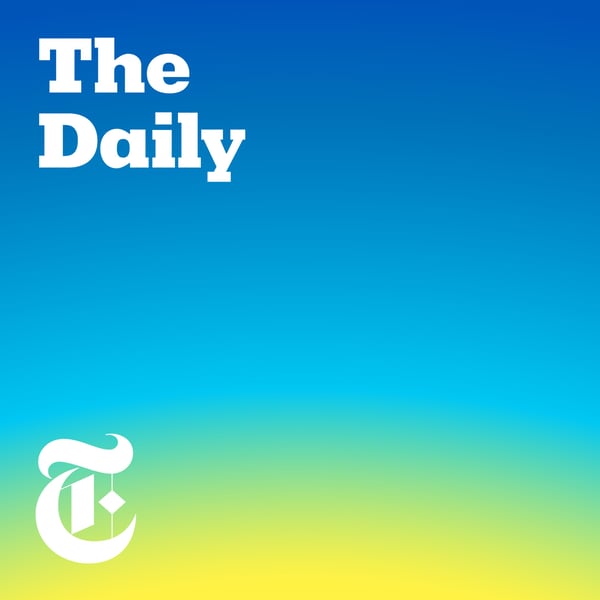The Sunday Read: ‘The Art of Telling Forbidden Stories in China’
The Daily
The New York Times
4.4 • 102.8K Ratings
🗓️ 1 October 2023
⏱️ 38 minutes
🧾️ Download transcript
Summary
Transcript
Click on a timestamp to play from that location
| 0:00.0 | Hi, my name is Han Jung, and I'm a contributor to the New York Times magazine. |
| 0:10.6 | I write about the political and literary narratives that are shaping the Chinese world. |
| 0:17.2 | This week's Sunday read is a recent story of mine from the magazine that started off as |
| 0:21.9 | a profile of a Chinese writer named Hao Chiang. |
| 0:26.6 | Hao grew up in a farming village, but because he tested while in his university entrance exam, |
| 0:32.7 | he got to go to school in Beijing. |
| 0:35.6 | Hao got a job in a corporate world in the early 2000s, but during a spell of boredom, he |
| 0:41.4 | decided to take up creative writing. |
| 0:44.8 | He started posting chapters of a novel online, and it just exploded, quickly attracting |
| 0:50.8 | an audience and the attention of publishers. |
| 0:54.8 | The internet novel came out as a very successful book, and for the next decade, he enjoyed |
| 1:00.3 | life as a best-selling author. |
| 1:03.8 | But all this came to an end in the early 2010s, when one of Hao's good friends was detained |
| 1:09.8 | by the Chinese authorities. |
| 1:12.4 | This friend was a scholar who was calling for political reforms. |
| 1:18.0 | Hao spoke up in defense of his friend, and very soon afterwards, Hao found out that |
| 1:22.8 | he was blacklisted. |
| 1:25.8 | Being blacklisted made that it became more or less impossible for him to continue to |
| 1:30.4 | speak or publish, whether online or in print. |
| 1:34.6 | His writing career was effectively over, by taking a public stance that was sympathetic |
| 1:40.5 | to a dissident, Hao had become a dissident himself. |
| 1:47.1 | Still in early 2020, Hao felt compelled to write about the Wuhan COVID lockdown, but |
... |
Please login to see the full transcript.
Disclaimer: The podcast and artwork embedded on this page are from The New York Times, and are the property of its owner and not affiliated with or endorsed by Tapesearch.
Generated transcripts are the property of The New York Times and are distributed freely under the Fair Use doctrine. Transcripts generated by Tapesearch are not guaranteed to be accurate.
Copyright © Tapesearch 2025.

